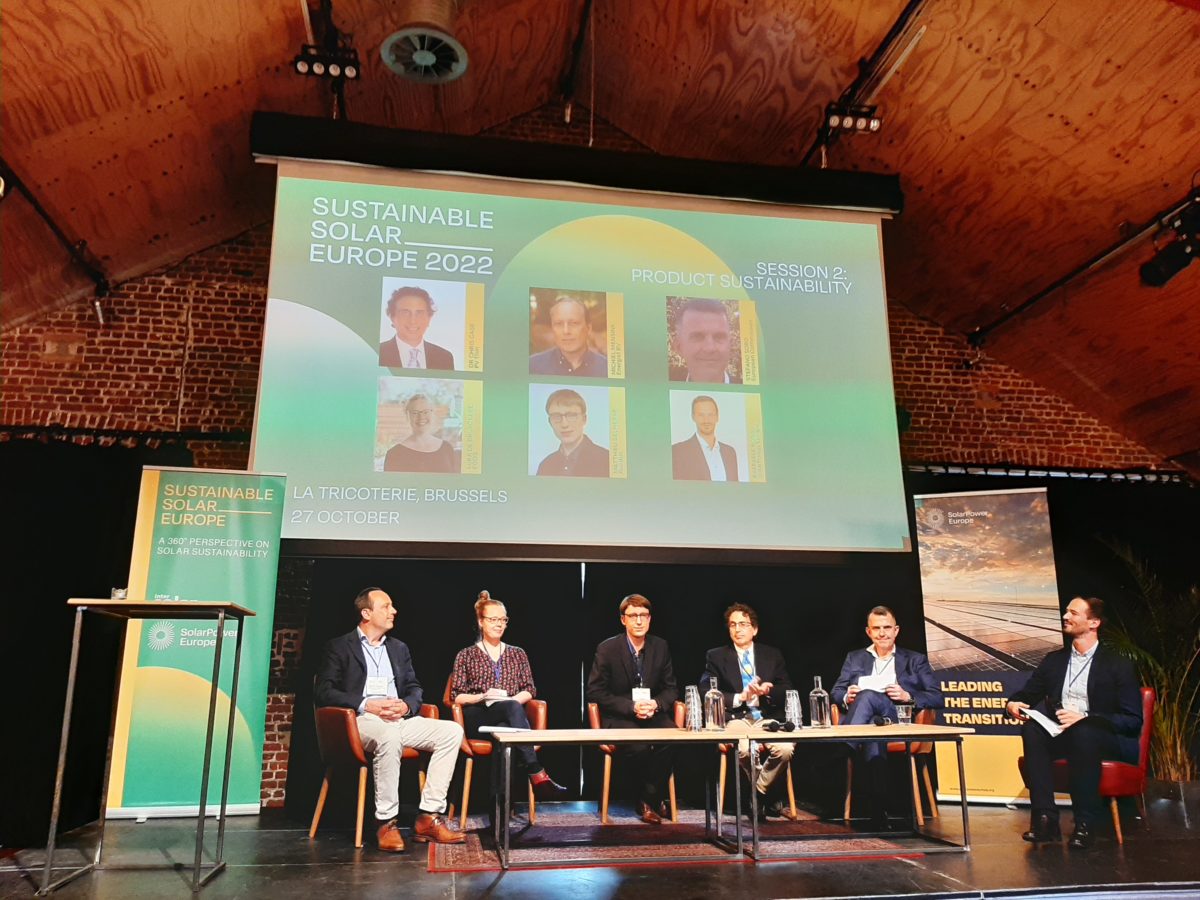The first edition of the Sustainable Solar Europe conference started in Brussels this week with a focus on the cost of sustainable solar and the most recent updates to the European Commission’s draft regulation on eco-design and energy labeling.
The regulation is currently under public consultation and is expected to be adopted in the first quarter of 2023. The authorities began working on it in 2017. It will purportedly provide consumers with comparability standards, resulting in products that are easier to repair and recycle, according to Stefano Soro, head of unit at the European Commission.
The eco-design draft regulation was welcomed by panelists from across the industry chain. It proposes the introduction of a carbon footprint calculation for PV modules, but not for inverters, which would instead face a reparability requirement.
“Calculation of carbon footprint should be done for everything we touch,” said Christopher Case, president of PVthin.
However, he said the policy could have “unintended consequences” if it is not properly implemented. The proposed carbon calculation standards might be biased against thin-film modules, even though they are reportedly less carbon intensive.
Soro said there are provisions for new technologies and companies.
“The [commission] is proposing to exclude from the scope of the regulation new technologies entering the market and companies with small [up to 500 MW] production volumes,” he said.
The energy labeling regulation, which could assign ratings based on the energy yield of modules, was heavily criticized across the board.
“Energy yield doesn’t provide value for consumers or the industry,” said Case, noting that the solar industry is focused on efficiency and economics. “A piece of paper on the back of a module won’t affect decisions.”
This content is protected by copyright and may not be reused. If you want to cooperate with us and would like to reuse some of our content, please contact: editors@pv-magazine.com.



3 comments
By submitting this form you agree to pv magazine using your data for the purposes of publishing your comment.
Your personal data will only be disclosed or otherwise transmitted to third parties for the purposes of spam filtering or if this is necessary for technical maintenance of the website. Any other transfer to third parties will not take place unless this is justified on the basis of applicable data protection regulations or if pv magazine is legally obliged to do so.
You may revoke this consent at any time with effect for the future, in which case your personal data will be deleted immediately. Otherwise, your data will be deleted if pv magazine has processed your request or the purpose of data storage is fulfilled.
Further information on data privacy can be found in our Data Protection Policy.